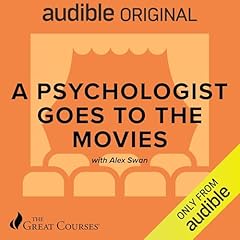
Backfired: Attention Deficit
No se pudo agregar al carrito
Add to Cart failed.
Error al Agregar a Lista de Deseos.
Error al eliminar de la lista de deseos.
Error al añadir a tu biblioteca
Error al seguir el podcast
Error al dejar de seguir el podcast
Compra ahora por $15.90
-
Narrado por:
-
Leon Neyfakh
-
Arielle Pardes
ADHD may be the defining diagnosis of our time. According to the latest data, more than 10 percent of American children (that’s 7.1 million kids) have been diagnosed with ADHD. And the number of stimulant prescriptions for adults in their 30s has shot up nearly threefold since 2012, hitting 15.3 million in 2021. It’s increasingly common to hear people who haven’t been diagnosed at all say they’re “so ADHD,” as if it’s more of a personality trait—or a zodiac sign—than a medical condition. In recent years, this explosion in demand has combined with other factors—including federally mandated limits on production—to create a widespread stimulant shortage in the US.
In the second installment of Backfired, cohosts Leon Neyfakh and Arielle Pardes look at the unintended consequences of the ADHD industry and trace the surprising path that brought us here.
Backfired: Attention Deficit is the latest podcast from Prologue Projects, the award-winning team behind Slow Burn, Fiasco, and Think Twice: Michael Jackson, and the second season of the Backfired franchise, a show about what happens when solving one problem inadvertently leads to a host of new ones. Backfired: Attention Deficit follows the acclaimed first season Backfired: The Vaping Wars.
For a list of books, articles, and documentaries used to research Backfired: Attention Deficit, please visit bit.ly/backfiredbib.
Backfired: Attention Deficit was hosted and produced by Leon Neyfakh and Arielle Pardes. The executive producer was Andrew Parsons. The senior producer and story editor was Madeline Kaplan. Producers were Dustin Desoto and Danielle Hewitt. Fact-checking by Maggie Duffy. Research by Frank Zhou. Archival research by Francis Carr. Theme song and score composed by Emma Munger. Audio mix by Aman Sahota. Backfired was co-created for Prologue Projects by Kim Gittleson.
©2024 Prologue Projects (P)2024 Audible Originals, LLC.
Interview: ADHD—and its meds—are everywhere. Has that "Backfired" for sufferers?
Los oyentes también disfrutaron:








About the Host

About the Host
Las personas que vieron esto también vieron:


















Dilemma of ADHD
Se ha producido un error. Vuelve a intentarlo dentro de unos minutos.
Good Historical View of ADHD
Se ha producido un error. Vuelve a intentarlo dentro de unos minutos.
Well made
Se ha producido un error. Vuelve a intentarlo dentro de unos minutos.
Good historic info
Se ha producido un error. Vuelve a intentarlo dentro de unos minutos.
Thurough & well rounded research
Se ha producido un error. Vuelve a intentarlo dentro de unos minutos.










